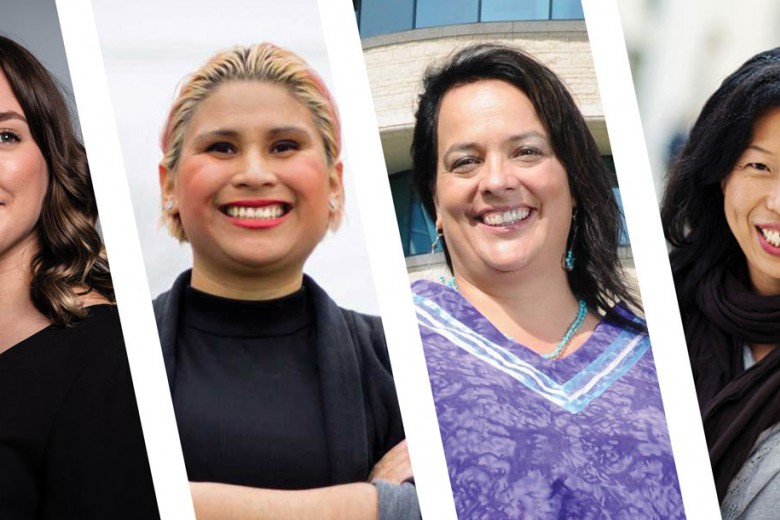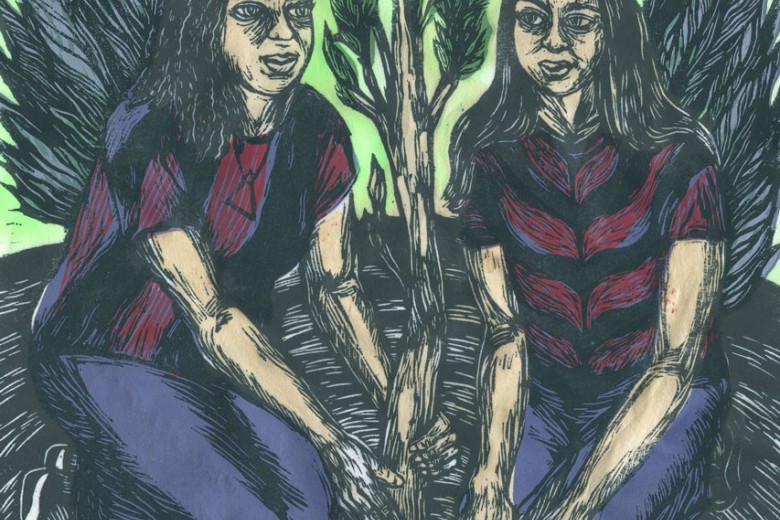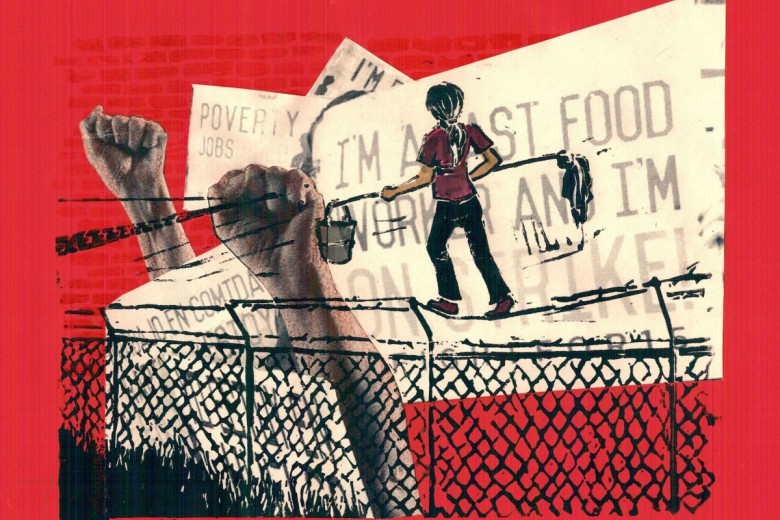
The day after the reunion, the subject line of Kelly’s email reads: “Did you hear?” On August 4, 2009, the same night as four university girlfriends and I had gathered for a 20-year reunion, a man walked into a gym in Bridgeville, Pennsylvania, and opened fire. In response to what his online diary described as years of rejection by women and his inability to get a girlfriend, George Sodini shot three women, injured nine others — all unknown to him — and then killed himself.
The coincidence is surreal. My undergraduate girlfriends and I had planned the reunion as a memorial of sorts to mark the 20th anniversary of the Montreal Massacre. On December 6, 1989, 14 female engineering students were shot to death by a man who blamed women — feminists in particular — for ruining his life. The event shocked and scared us because we saw just how far the backlash against women could go.
I swiftly type my reply to Kelly’s email:
“The shooting and killing of those women on the same night as our reunion is unbelievable. Clearly misogyny is still alive and kicking. Getting together with you all made me realize that perhaps we still can make change. Instead of enlisting as junior members of the raging grannies, maybe we can morph into some fabulous forty-something gang? Something to ponder.”
Not a single one of my former fellow activists responds to my email. My disappointment turns to depression. How is it that as 40-something professionals, we don’t feel we have the same power and voice and ability to make change that we once believed feminism offered us? What has happened to us? To the world around us?
In the wake of this latest killing, we won’t be gathering in the Queen’s University Women’s Centre to plan a candlelight vigil. Julie won’t be making a sign that reads “Misogyny kills.” Nothing but a brief flurry of emails.
It is not that my girlfriends don’t want to speak out about violence against women anymore. It is, I tell myself, that in our supposedly post-feminist age, such outbursts from savvy professional women seem uncouth and unreasonable. Now that women are encouraged to pursue an education, a career, and be sexually independent, many see feminism as a thing of the past. To ease our way in the world, women like me have given up any public claims to feminism, or have at least tucked it away in an unobtrusive corner of our beings so as not to offend.
We have become lapsed feminists.
The rise of ROFF
Twenty years ago, my girlfriends and I, undergraduates all, formed ROFF — Radical Obnoxious Fucking Feminists. We gained notoriety in the media for our political protests. A Globe and Mail reporter described us in November 1989 as a “shadowy group” that shook “the serenity of Queen’s, a campus renowned as a hotbed of social rest.”
On Valentine’s Day we planted stop signs around campus to mark the places where, it was rumoured, women had been sexually assaulted. During Orientation Week, we whitewashed the “Golden Tit” the speed bump engineering students decorate each year with a pink nipple, and spray painted “ROFF” over top in purple letters. We organized a 24-hour sit-in in the university principal’s office with two dozen other women. The sit-in was a response to the administration’s failure to discipline a group of first-year male students living in residence who had plastered their dorm windows with slogans like “No Means Kick Her In The Teeth” “No Means Tie Me Up” and “No Means Harder.” The signs were the men’s response to a “No Means No” anti-date rape awareness campaign on campus.
My ROFF girlfriends and I had come to Queen’s in the late 1980s believing the battle of the sexes was over. Instead, we faced signs on student ghetto houses with messages like “Bring Your Virgins Here” “Show Your Tits” and “Why Beer is Better than Women: Beer Doesn’t Run to Tell the Police When you Rape It.” We met one another in classes on feminist jurisprudence, women in politics, literature and philosophy, and made the Queen’s Women’s Centre our clubhouse.
We were empowered by the possibilities feminism offered to challenge society’s power structures. We devoured the texts of writers like bell hooks, Catharine MacKinnon and Carol Gilligan, and the lectures of our young, untenured female professors who sparked discussion about the exploitation of women in a male-dominated culture.
The gender politics at Queen’s and other campuses across Canada certainly reinforced this perspective. We read about panty raids at Wilfred Laurier University where male students splashed ketchup on women’s underwear and hung them out for display. Blindfolded and bikini-clad mannequins were paraded through Carleton University’s campus. We saw the world anew, and it seemed a threatening place, full of hatred towards all things feminine. In feminism we saw hope; a way to make the world a safer place for women.
ROFF reunited
The release of the film Polytechnique, a dramatization of the Montreal Massacre, in early 2009 inspired me to track down my ROFF girlfriends and host a reunion. I remember how devastated we were by the massacre, how it felt like the culmination of everything my ROFF girlfriends and I were fighting against at Queen’s. After reading a review of the film in the Globe and Mail, I decided to re-establish contact with my girlfriends and engage in some collective soul-searching about our university activism. I was curious to hear about the paths their lives and their feminism had taken.
As Kim, Kelly and I gather around Kim’s living room table, noshing on low-fat, low-carb crudités, white wine and Diet Coke, Jen and Julie join in the reunion by teleconference from British Columbia and Nova Scotia respectively. Once we are past the niceties, the conversation turns to our feminist activism as undergraduates.
We laud ourselves for our political protests and remind ourselves how the media attention we got for the sit-in sparked a national debate about sexism on campuses. Toronto Star columnist Michele Landsberg wrote at the time that “women from all over Ontario have written me letters of blazing indignation about the sexist hazing they receive at universities in this province. Some of the language they endured — language on banners and T-shirts — would make you faint with shock.” We talk about how our actions helped raise the issue of systemic discrimination against women in universities, and how that discussion spilled out into the workplace and onto the streets until it became a matter of public debate.
Despite the pride evident in my ROFF girlfriends’ voices, not a single one of us identifies professionally as a feminist today. “I don’t say I’m a feminist, but talk more about social justice issues. They are much broader than gender politics and that language” says Jen, director of a network of HIV/AIDS organizations in B.C. After a brief stint articling at a corporate law firm in Vancouver left her miserable, she took on advocacy work in the predominantly gay HIV/AIDS community in the mid 1990s. There she used her legal expertise to help those with HIV/AIDS access Canada Pension Plan and B.C. benefits.
For Jen and many other women today, the discourse of gender politics is a thing of the past, its legitimacy giving way to other issues — social justice, the environment, antiglobalization, etc. Julie, now general manager of a non-profit arts organization in Nova Scotia, was ROFF’s leading agitator. She has continued to be a vocal proponent for change, working for a London, Ontario, homeless coalition and eventually running for the NDP in the riding of London North Centre in the 1990s. Now living in a hamlet near the Bay of Fundy, she describes her current political activism as more locally focused. Managing a theatre company, running artist retreats and art camps for kids where discussion centres on issues like the environment and mental health, she says she’s “gone from making bigger changes and contributions to smaller local things. I feel like I have more personal impact this way.”
As we aged, we began to choose more manageable goals, but the playing field also shifted. At the same time as we were launching our careers, falling in and out of relationships, acquiring mortgages and having children, society was rebranding feminism as irrelevant. Feminist scholar Angela McRobbie says this is not a straightforward right-wing backlash against feminism. Instead, feminism has been incorporated into this new “post-feminist” landscape through media depictions of independent, sexually liberated women like Bridget Jones and Sex and the City‘s Carrie Bradshaw. These images of strong, educated and sexually independent women (who also happen to be white and middle-class) give the message that equality between the sexes has been achieved, and suddenly feminism is passé.
It is not that the feminist demands for equality have been met, however. It is that in this new social and cultural landscape, the language of feminism has been delegitimized. What happened for women like my ROFF girlfriends and me is that in one way or another, we have all had to make the bargain so many middle-class women come to make to find success in our personal and professional lives. The bargain is this: women can be powerful as long as they give up their claims to feminism and the notion that women are unequal and marginalized in society.
‘Post-feminist’ malaise
Kim, a single mother with a high-status job with the government of Alberta, outwardly personifies the changes feminism has undergone in the intervening years. She has transformed from a curvaceous, bohemian-dressed, unruly-haired brunette to a thin, blonde Gabrielle Reece look-alike in tailored suit and heels.
Bunking at her house for the reunion, I see how she organizes her life to meet all the demands on her time. Up at 5:30 a.m. to work out on the elliptical machine in her basement, she’s showered, dressed and feeding her boys by 7:00 a.m., shuttling them off to school to clock in at the office by 8 a.m. A full day at work is followed by a busy evening of attending to her kids’ after-school activities, meals, homework and bedtime. Her attention then turns back to the briefcase of work she’s brought home before her head hits the pillow at 11 p.m.
It is a rigid schedule but one that is reinforced through women’s magazines and TV talk shows that promote the message that working women’s demanding timetables show how competent we are because we can, and do, “do it all.”
Kelly and I have similar schedules to Kim’s. We’re both at the gym four or five times a week, working out with personal trainers to fit the thin, tailored professional woman mould. Kelly, the mom of twin boys conceived through donor insemination, manages a busy family law practice where as a legal expert to the federal government on assisted reproduction, surrogacy and ovum/sperm donor agreements, her services are in demand.
As a self-employed writer, I have the luxury of working in my home office but my day is still rigidly structured. Bouts of writing interspersed between meetings with clients, meal preparation, car-pooling my son between school and after-school activities, and trying to care long-distance for my aging parents.
By adopting these roles, Kim, Kelly and I have been able to achieve success in the still predominantly male workplace. The price we have paid for such success has been to have to distance ourselves from our earlier feminist identities, or at least from contemporary culture’s view of feminism as a juvenile, extreme dogma typically associated with hatred towards men. It is not that we believe that equality between the sexes has been achieved; it is that living the day-to-day practice of feminism in our professional and personal lives is much harder than we anticipated as young women. Feminism is a long historical movement; as individual women striving to find fulfillment in our personal and professional lives, it is hard to live that struggle on a daily basis in the face of a culture that tells you feminism is a thing of the past.
“In my circle of friends, I wouldn’t say I’m a feminist but wouldn’t say I’m not. I talk about broader social justice issues. Despite feminism’s efforts to be more inclusive of other issues, it’s not” says Kelly.
As we recount the trajectories of our various career paths, the joys and challenges of raising boys (Kim, Kelly and I all bore sons) and the ups and downs of our sexual relationships with men and women, we recognize the irony of our situation. Feminism has played a significant role in making our professional, ideological and identity choices possible. As a successful lawyer active in Toronto’s gay and lesbian community, Kelly can partially credit the gains made by the feminist movement. Yet, like the rest of my ROFF girlfriends, she has come to distance herself from feminist rhetoric in order to succeed in the legal profession.
While my ROFF girlfriends no longer identify as feminists, they readily acknowledge the ample evidence that exists showing how women have not overcome the problems feminism sought to solve. “I firmly believe that as much as women think they are sexually liberated now and sexual equals to men, it’s crap. At work, if a man sleeps around, he’s unremarked; if a woman does, she’s labelled the office bicycle. That has not changed one iota” says Kim.
According to Statistics Canada, women are over six times as likely as men to be victims of sexual assault, the majority perpetrated by someone they know. Women working full-time still earn 29 per cent less than men employed full-time; the gap between male and female earnings has not changed significantly in the past decade. Women are still the primary family caregivers, far more likely than men to have to take time from their jobs because of personal or family responsibilities.
Recognizing the imbalances of power women still face, my ROFF girlfriends and I reflect on how important women’s studies courses were for us as young university women, offering us a critical lens and analysis about the place of women in the world. But today, young women are losing those avenues. The recent closure of the women’s studies program at the University of Guelph, the under-resourcing of women’s studies in general within Canada and the complete disappearance of women’s studies as an undergraduate degree in the United Kingdom highlight how the discipline is increasingly seen as a soft subject, lacking academic rigour and based on dated politics.
Not so radical
As the wine bottle empties and our reunion winds to an end, the discussion turns to our love lives: new relationships bubbling up for Kim and Julie, Jen making peace with being newly single, Kelly and I in long-standing relationships. Perhaps we are no different from Carrie Bradshaw: strong, independent, professionally successful, yet still, in the end, looking for life’s fulfillment through our relationships.
It is evident that the politics and passion for change that first brought us together 20 years ago are gone. We once felt so powerful in our efforts to make the world a better place. Now, looking back, I’m disappointed in myself, and to some extent in my ROFF girlfriends, for not holding on to our feminist principles as we aged; for not fighting against the inequality we met in our workplaces and in our personal relationships; for what many might call “selling out.” I don’t think we’ve necessarily sold out; there is just so much working against us in this struggle for broader equality.
As the fall deepened and the 20th anniversary of the Montreal Massacre drew near, I managed to put aside some of my sadness about the reunion and my ROFF girlfriends’ loss of faith in feminism as a tool for change. I know now it wasn’t that we were naive or too radical to realize that the feminist project was some impossible dream. Rather, it was that we weren’t radical enough to stop the backlash that has sidelined feminism as a force for change — that keeping feminism meaningful for younger generations of women has proven a harder task than we ever imagined.






